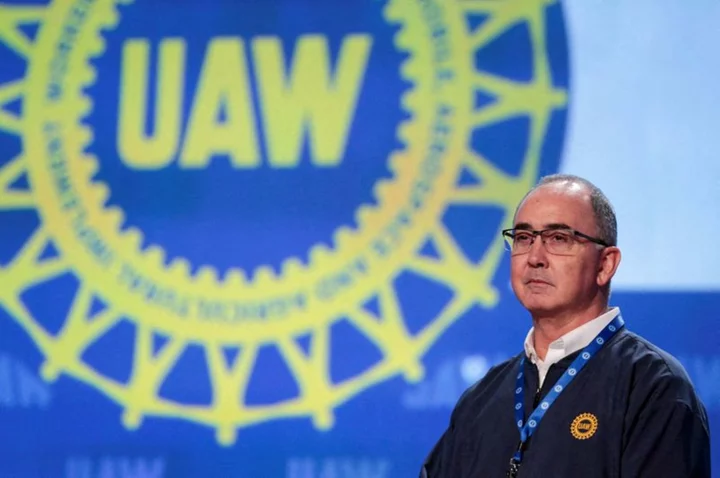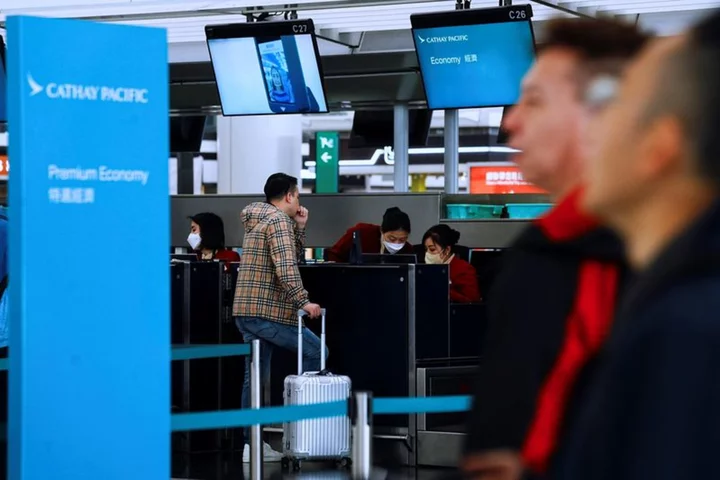By Shivansh Tiwary
(Reuters) -The United Auto Workers (UAW) union on Friday voted in favor of authorizing a strike at the Detroit Three automakers if an agreement over a new contract is not reached before the current one expires on Sept. 14, UAW President Shawn Fain said.
The authorization, which is seen as a leverage to enhance pay talks, was approved by 97% of voting members at General Motors, Ford Motor and Stellantis, said Fain, who leads the union that represents about 150,000 workers.
The development comes as the union and the companies made little progress in their talks. Analysts estimate a more than a 50% chance of a strike.
While a strike authorization is a common bargaining tool in the U.S. auto sector and other industries, the tension over this year's contract talks in Detroit is new.
The vote does not guarantee a strike will be called, only that the union has the right to call a strike if the companies refuse to reach a fair deal, the UAW said.
"Our members expectations are high because Big Three profits are so high," Fain said.
Stagnant pay, high healthcare costs, less sick time and uncertain scheduling have pushed American union workers to rethink their priorities after pandemic to seek higher wages, and better work-life balance.
Major U.S. unions have taken advantage of a tight labor market and responded to high inflation by pressing and securing double-digit pay raises at delivery giant UPS and aerospace supplier Spirit Aerosystems.
Fain has outlined an ambitious set of goals, including an end to the tiered wage system that pays new hires less than veterans, reinstating cost-of-living adjustments and restoring defined-benefit pension plans that the automakers ended years ago for new hires.
GM, Ford and Stellantis have said they want to reach a deal that is fair to the workers but also gives the companies flexibility, as the industry shifts to electric models that have fewer parts and require less labor.
Ford shares were down 1%, while General Motors shares fell about 2% in morning trade.
Michigan-based Anderson Economic Group has estimated that a 10-day strike that shuts down the automakers could cost manufacturers, workers, suppliers and dealers more than $5 billion. Of that, $859 million would be in lost wages.
Walkouts at the Detroit Three could benefit Tesla and other non-union automakers, including Toyota Motor Honda Motor, Nissan Motor and Hyundai Motor, Anderson said.
(Reporting by Shivansh Tiwary in Bengaluru, Additional reporting by Nathan Gomes; Editing by Arun Koyyur)









